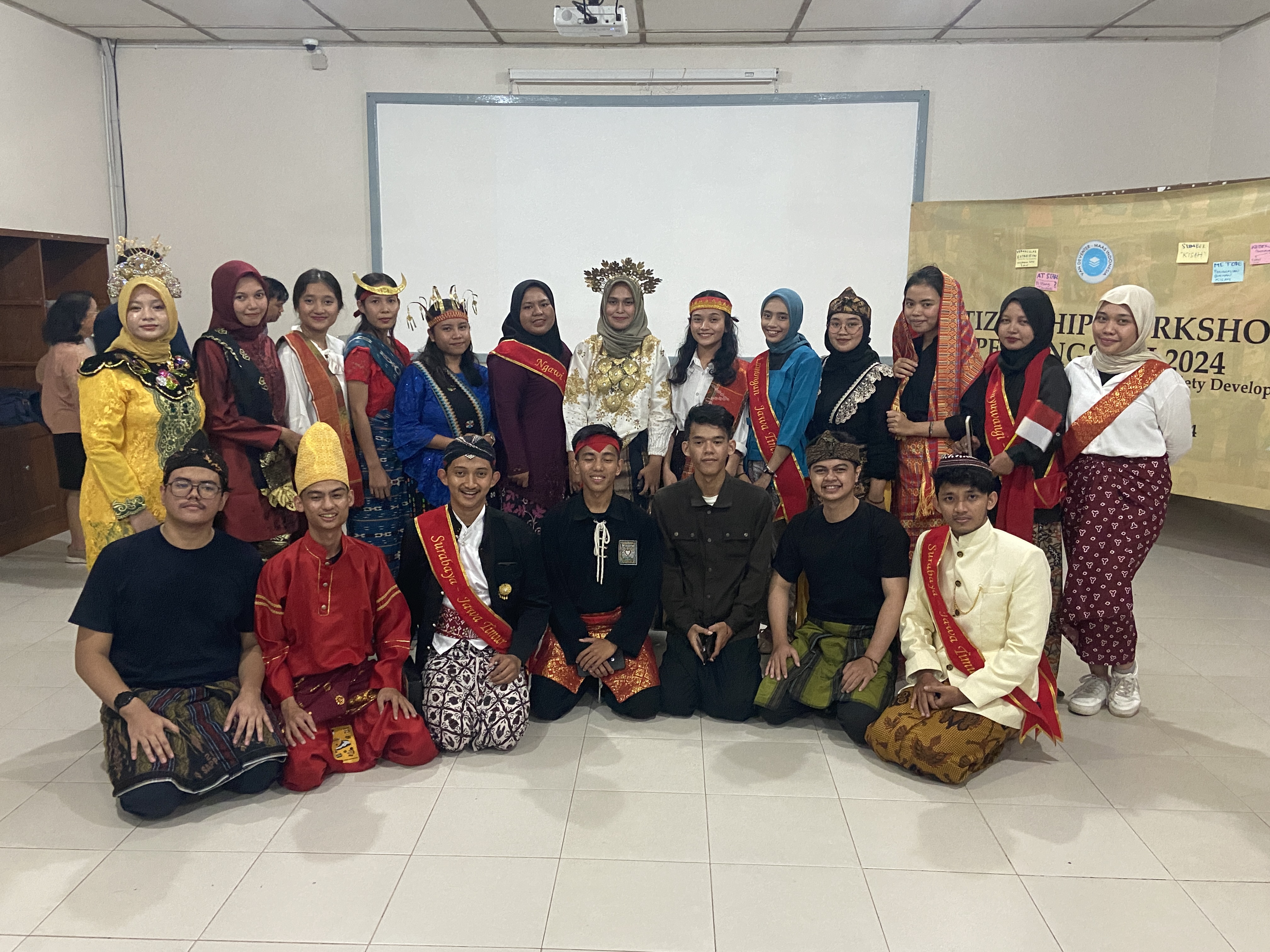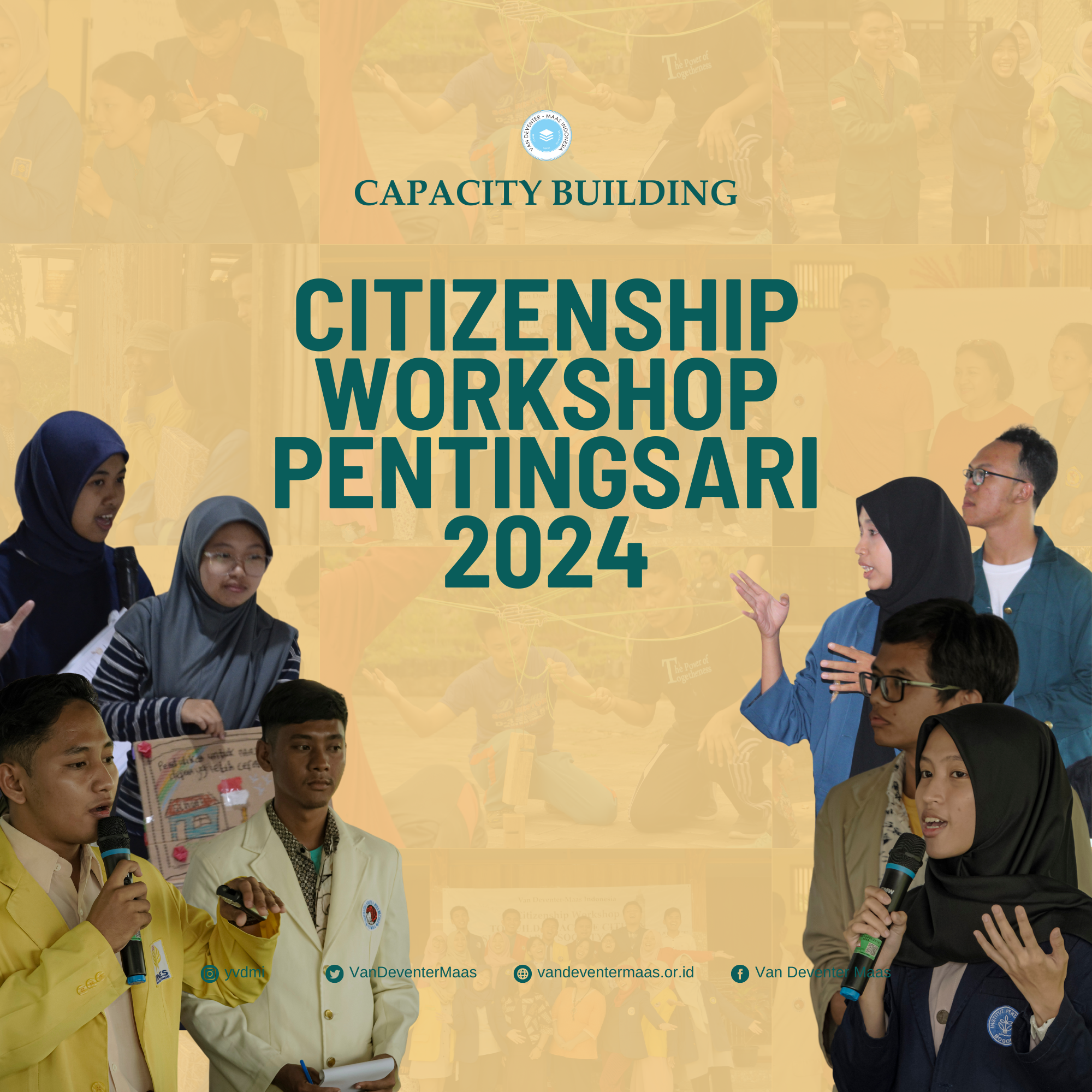2024 – Citizenship Workshop Pentingsari
Van Deventer Maas Indonesia committed to creating a capacity building project, based on the needs of grantees. The theme is “To build an Active Citizen for Sustainable Society Development” on June 4 – 8 2024. Background of this program is to provide soft skills for VDMI 4th year grantees to be ready to jump into society. Implemented their knowledge and study background able to be implemented and how to be an active citizen especially for sustainable society development. This program was attended by 20 selected participants from around Indonesia. On the day of arrival, participants were divided into five groups with five local potential resources: Coffee plantation, Fish Cultivation, Tourism Village, and Orchid Conservation.
On the first day, the session begins with a central topic about Leadership in the 2045 future, facilitated by Dr. Jenny Ratna Suminar. She shared of facing the Indonesian people, especially those they observed in their social environment. Participants were asked to describe how they can play a role in the future. Indonesia is a country that has diversity in many aspects such as culture, ethnicity, language, religion and so on, basically we must treat differences as a gift and we cannot compare them with other countries because Indonesia has its own uniqueness.
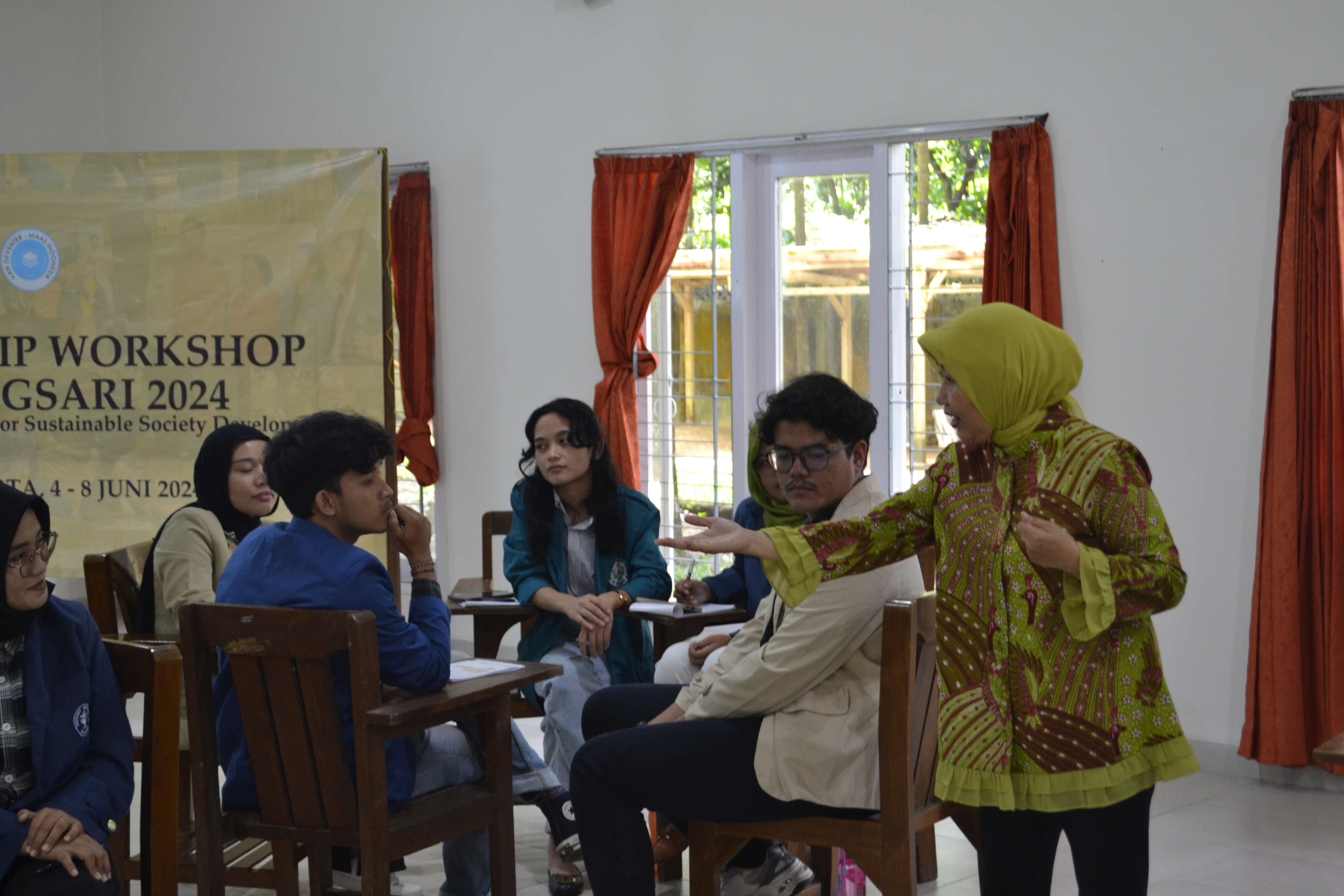
All of this country’s problems and challenges must be recognized and understood by future leaders, so that from now on they have prepared the personal competencies needed to answer these challenges. The participants were asked to form discussion groups which were divided into groups with respective discussion themes of education, health, economics and politics, by discussing what the problem is in each aspect and the solutions offered to overcome this. Also, participants were encouraged to learn the history of the nation’s struggle and the ideals of the nation’s founders as a map of the journey that has been passed as a nation. They have to choose idols who are able to motivate and be role models in leading society and have a high sense of responsibility and nationalism as intellectuals.
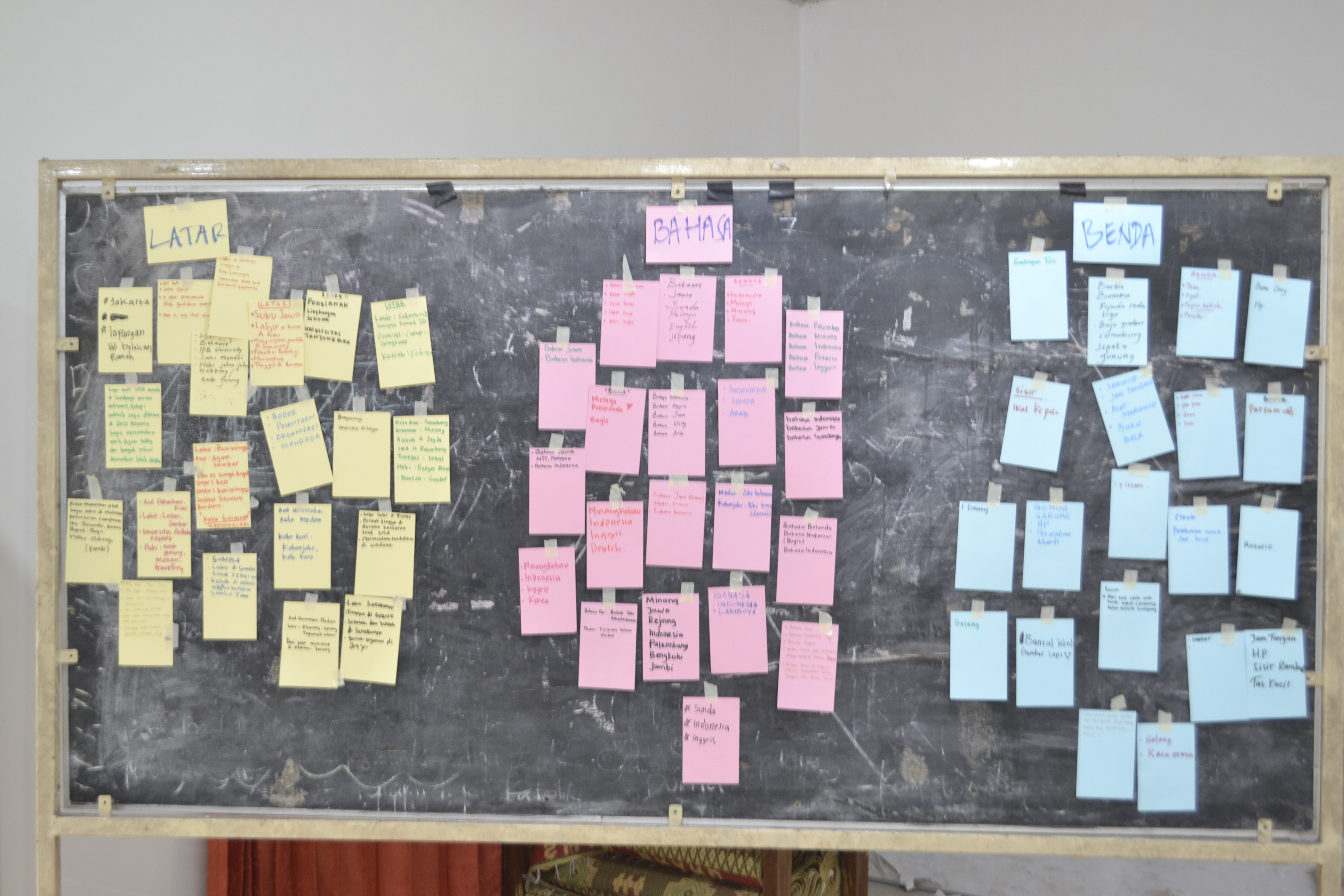
On the 2nd day, The session starts with field research and essay writing shared by Dr. Zaki Habibi. He shared a methodology on how to observe society, starting with knowing what influenced each participant’s self or personality to become the person they are today, by distributing three types of paper to write on which were divided into three parts namely as background, language and objects. Each participants was asked to write it on each piece for the things that are very impressive and influential in his personal life, including his thought patterns and actions and collect it to show to all the participants, from there we can learn that there are many things we can observe from each person, and we can know and understand someone more precisely.
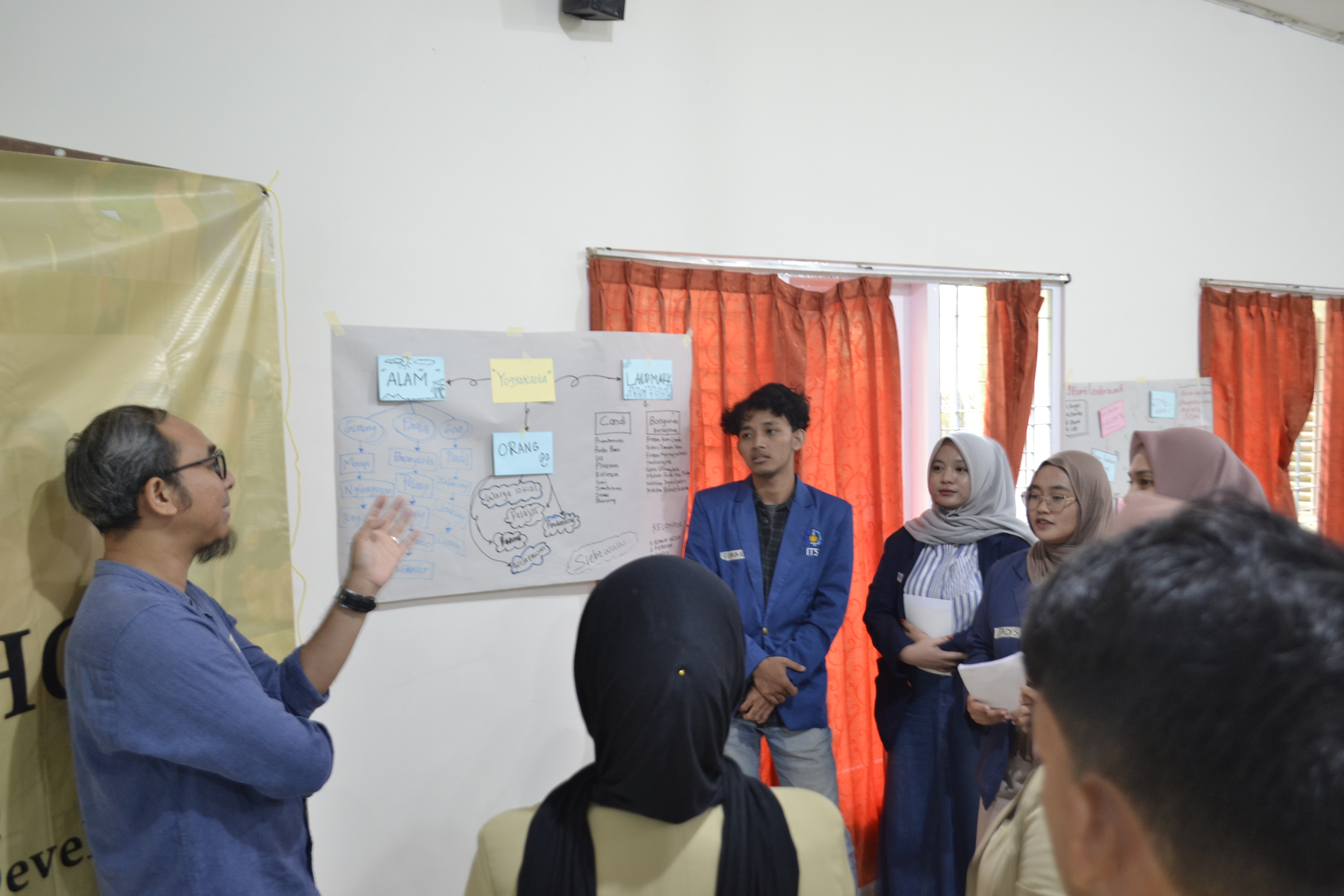
Continuing in the afternoon, the participants had a refreshment to define the meaning of self-awareness by Anggoro Mukti. This learning journey, they were equipped with a self-understanding exercise to help them find their individual personality and understand about themselves. At the end of the day, they did some reflection to refer to “what is the meaning or purpose of Active Citizenship for Sustainable Social Development?”. Some participants shared that, as future leaders are obliged to learn to prepare themselves in terms of the competencies needed in accordance with their respective capacities to lead society in accordance with their respective fields, they must also have benefits for their social environment.

On the 3rd day, Anggoro continued team building sessions with a game or role play about cooperation between teams, to identify the attitudes and techniques needed to strengthen teamwork to solve problems in real life wherever they will work or contribute so as to obtain optimum results. In the afternoon, participants had an opportunity to get information about the history of Pentingsari village. Which now has succeeded in becoming a successful educational tourism village in empowering their community either in the social or economic sector. After that, participants begin the local exposure by field practice to the society. Each group has separated to visit Argomulyo village, Merapi Vulkanik Coffee, Pentingsari Tourism Village, and Orchid Conservation. During this session participants have an assignment to write a report with the topic of how the society is able to develop.
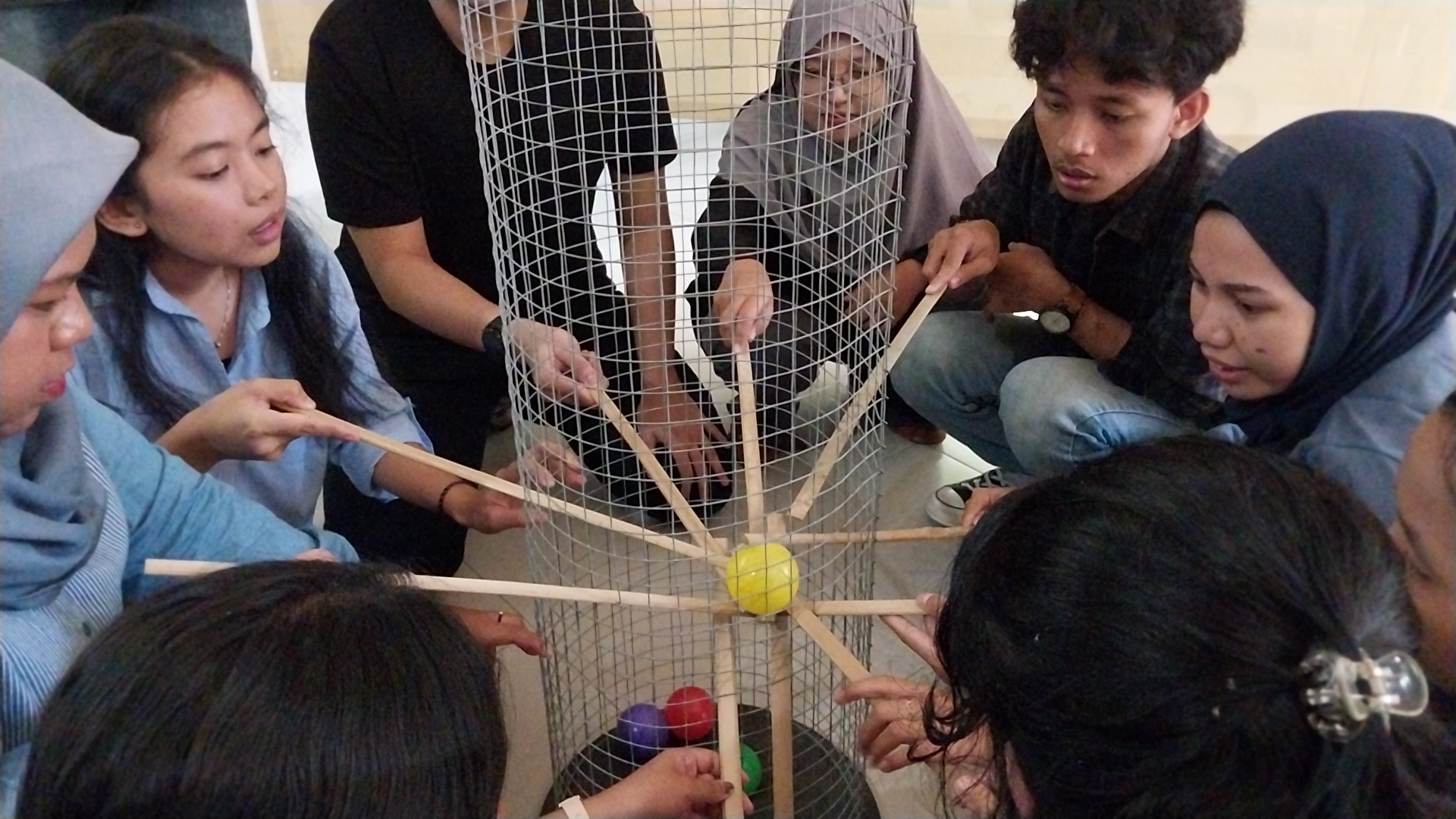
On the 4th day, Marsen Sinaga delivered Mindfulness for sustainable development of human society. Participants were asked to introduce each of them, knowing themselves, to an outdoor session to create a bonding with non-human objects. Mindfulness aims to make a person more focused on the current situation and encourages individuals to recognize their place within a larger ecosystem. Continuing discussion with the participants, Annisa Taqwa (VDMI Alumna) shared information to be aware of social media; from bullying to sexual and drug abuse and hopefully participants can take part in preventing or providing solutions to the cases.
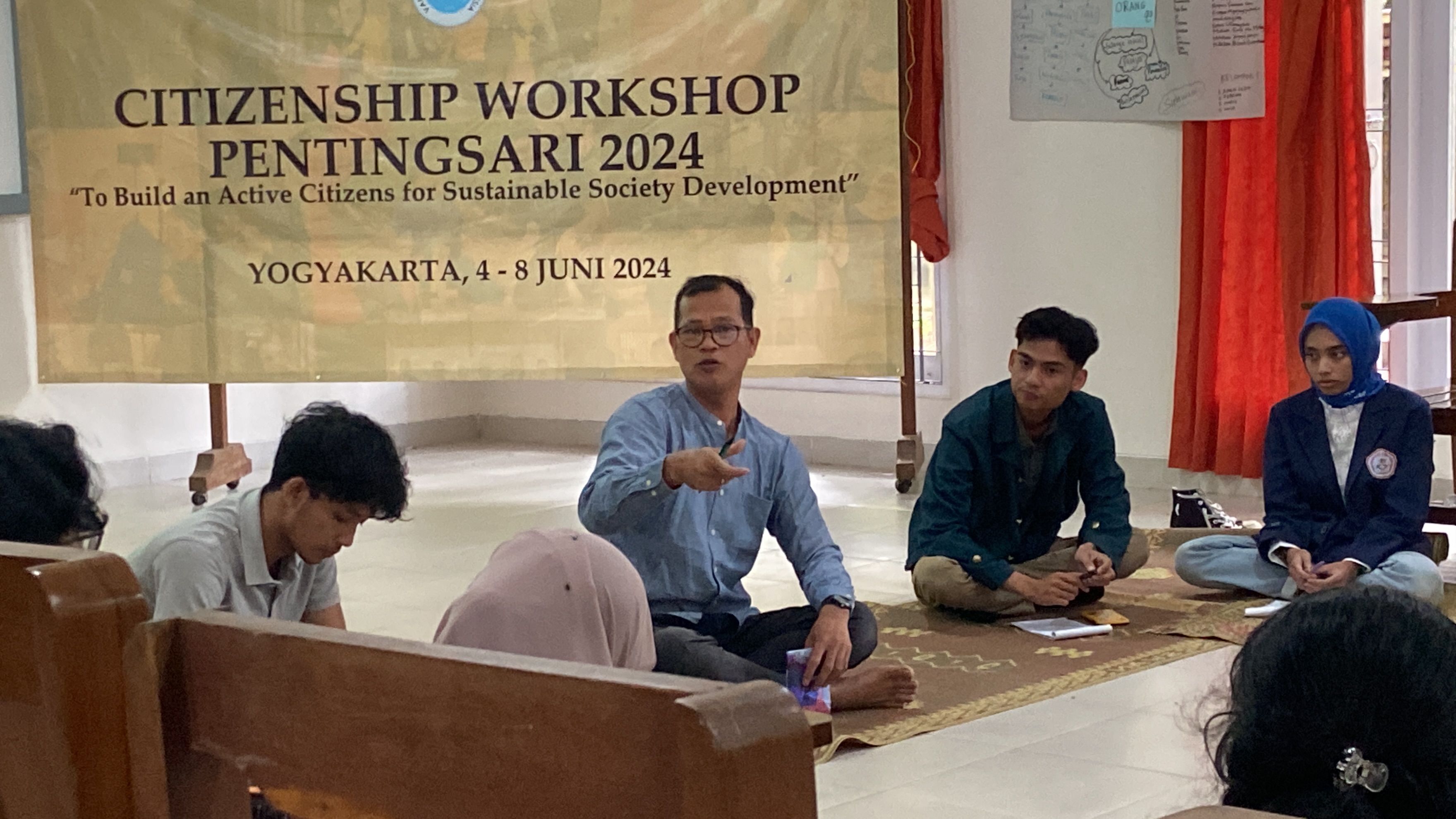
On the last day, participants present the results of local exposure based on their respective topics. Group 1 (Coffee Plantation) highlighted: Improving the quality coffee production and lack of employees or staff who assist in the coffee bean harvesting process. Team proposed that the synergy of the Pentahelix model attracts young people in the coffee plantation sector, sales and packaging optimization, rejuvenation pruning, digital business optimization increase productivity and competitiveness. Group 2 (Fish Cultivation) highlighted the challenges: extreme weather, fish feed has a fluctuating price ; and once contaminated with pesticides 10% of the population were dead. The solution for its problems could be to maintain Water Treatment, make a Careful planning, and use the Organic Food Leftovers or making their own feed from local ingredients. Group 3 (Tourism Village: Pentingsari) highlighted the village was initiated by just seven people where the idea to create a tourist village was only approved by 20% of the residents, but with intense education to the community and good organizational practices and village management, it finally received support from the entire community. They suggested building a center of local souvenirs, providing better dustbins, updated information boards for SME (Small Business Enterprise), procurement catalogues, and holding an annual event. Group 4 (Orchid Conservation) highlighted the obstacles in resource needs, marketing strategies, environmental conditions, and local youth participation. They shared their ideas on Education and training about the importance of preserving Indonesian orchid species., establishing collaboration with conservation institutions such as BKSDA (Government), and developing effective control methods.
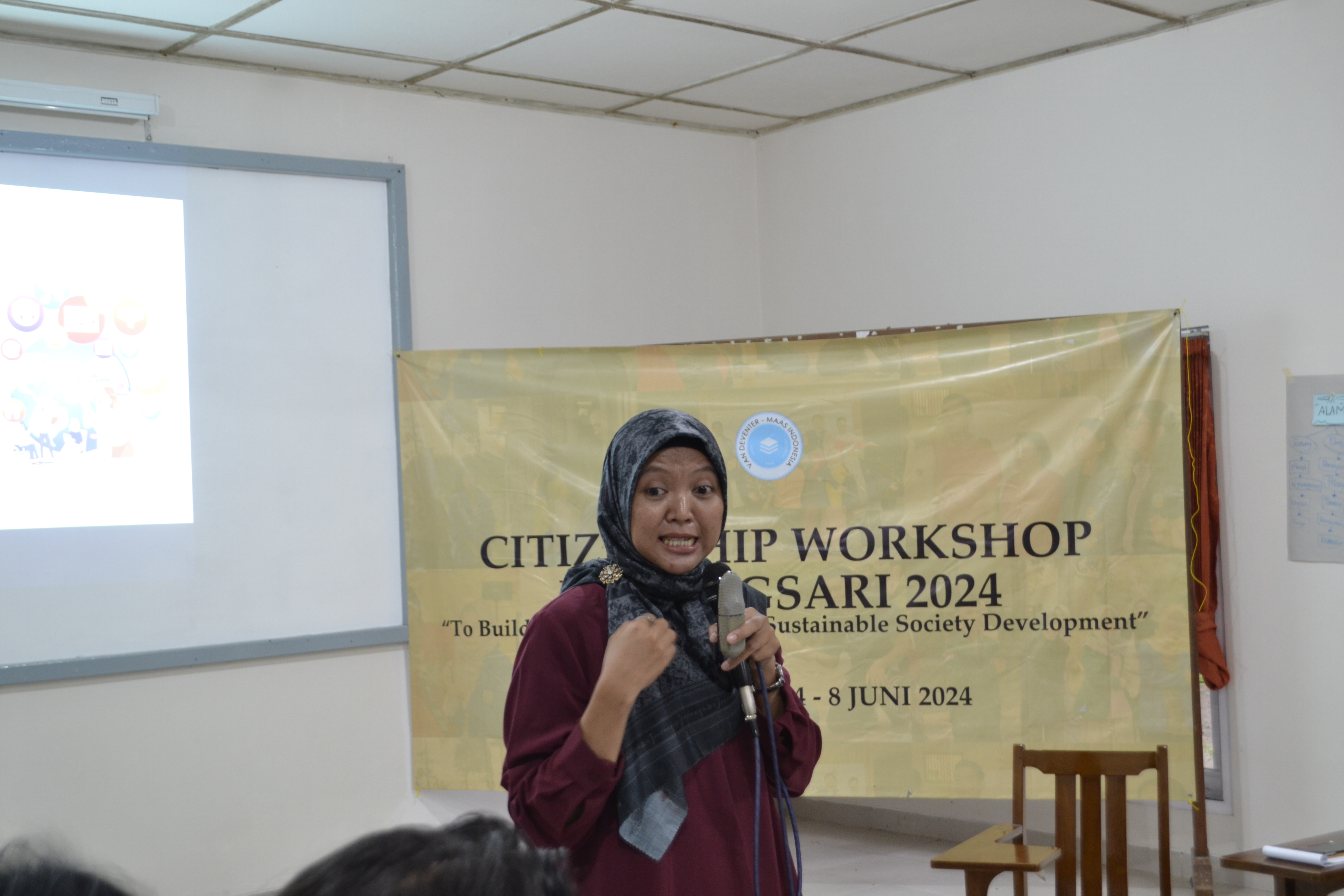
At the end of the Citizenship Workshop, all participants prepared for the art performance from each region: North Sumatra, West Sumatra – Riau, West Java, East Java, West Kalimantan, South Sulawesi, and East Nusa Tenggara.
